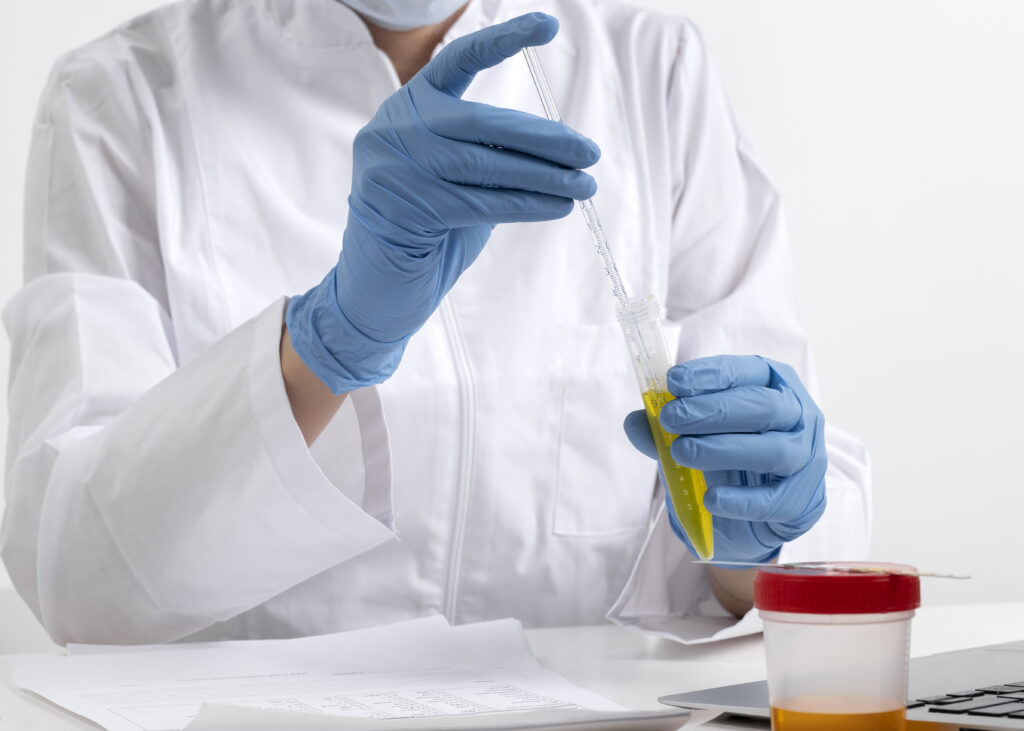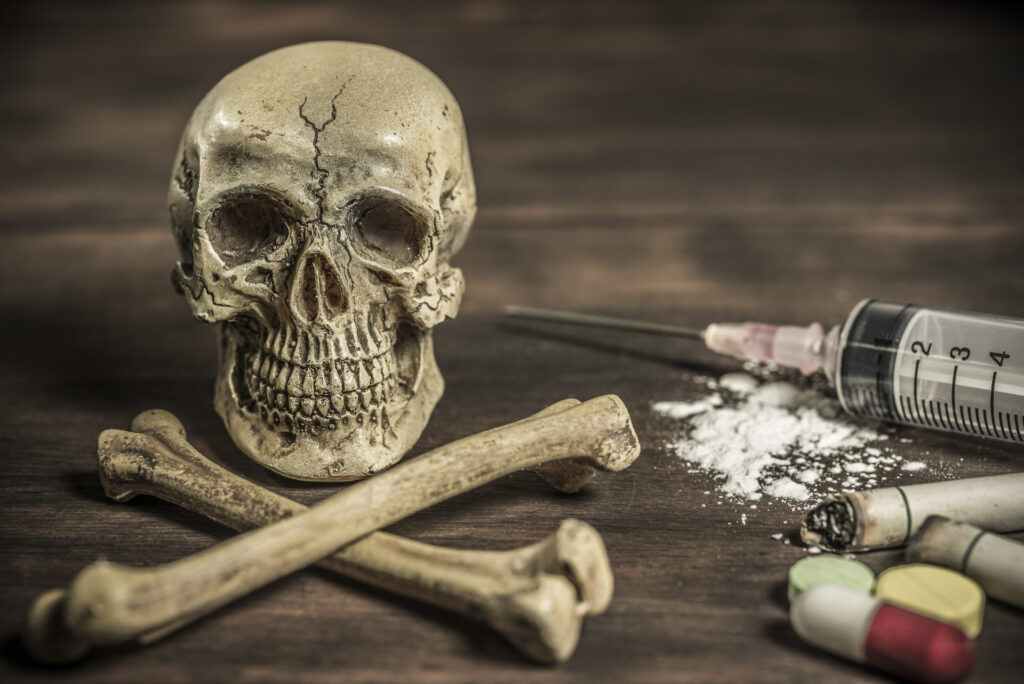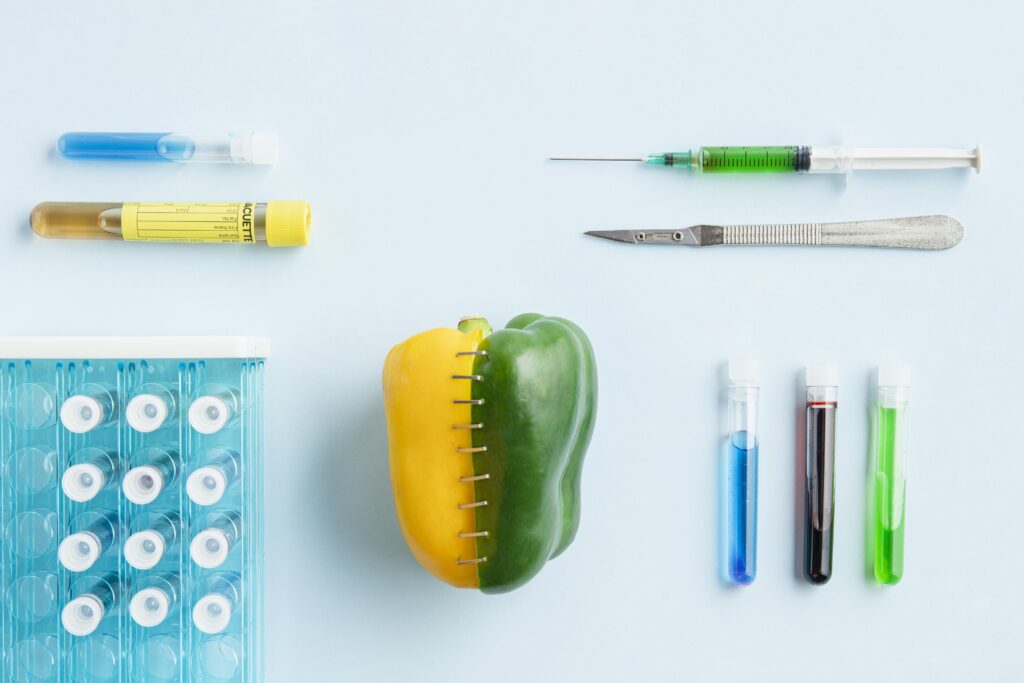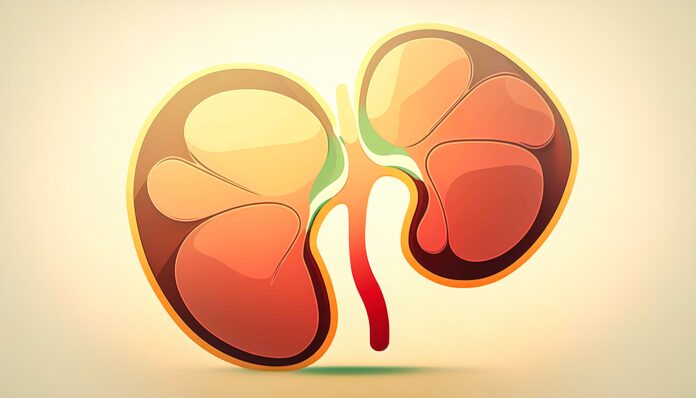Renal failure is also known as kidney failure. Kidneys are two structures found in your body on either side of your spine, just above your waist, specialized for cleaning your blood. A pair of kidneys filter extra water out of your blood and contribute to controlling your blood pressure. These organs are also responsible for the metabolism of vitamin D needed for bone health and the production of red blood cells.
Any damage to your kidneys leads to the building up of waste products and extra fluids in your body and blood. Accumulation of waste materials results in several diseases like weakness, nausea, shortness of breath, poor sleep, and swelling in your ankles. If remain untreated the damage can get worse as a result your kidneys stop working. This is a life-threatening condition that can lead to death.
Main Functions of Kidneys
Your kidneys perform different functions in the body but the main job of your kidneys is the cleaning of your blood and making urine.  When the kidney doesn’t work properly, the waste materials accumulate in your blood and body. Along with these two main functions, some more functions are also performed by your kidneys, such as your kidneys:
When the kidney doesn’t work properly, the waste materials accumulate in your blood and body. Along with these two main functions, some more functions are also performed by your kidneys, such as your kidneys:
- Maintain water and minerals balance in your blood. The minerals may be phosphorus, sodium, and potassium.
- Produce a renin compound that is used by your body to manage your blood pressure.
- Produce vitamin D in active form to strengthen your bones and muscles.
- Filter your blood every 30 to 25 minutes for better functioning.
- Remove waste products from your blood produced after the processes of muscle activity, digestion, and exposure to drugs.
- Produce a special chemical named erythropoietin needed for the production of red blood cells.
Kidney Failure
This is the condition in which your kidneys become unable to work properly and can’t filter waste products from your blood. Kidney failure is of two types:
- Acute kidney failure.
- Chronic kidney failure.

Acute Kidney Failure
This is the short-term damage to your kidney function. It can occur suddenly, within a few hours. Its main causes are:
- Use of any drug or poison.
- Any infection.
- Severe dehydration.
- Any injury or illness.
Your kidney can recover from short-term conditions over time. These organs can recover from such conditions within days. However, studies show that acute kidney failure sometimes causes permanent damage to your kidney that can lead to chronic kidney failure.
Chronic Kidney Failure
The condition due to which your kidneys get damaged completely and their original structure or function cannot be recovered ever. Chronic kidney failure develops in months or years and is a life-threatening condition that can’t be cured at all.
These two are major types of kidney failure. In addition, some common kidney diseases are also jotted below. Keep on reading!
Polycystic Kidney Disease: This is a genetic disorder and occurs due to the formation of fluid-filled sacs in your kidneys. These cysts limit the ability of your kidney and they can’t filter wastes from your blood.
Interstitial Nephritis: A bad reaction to a medicine causes this condition where the medicine limits your kidney’s ability to filter toxins from your blood. Stopping the medicines can relieve the symptoms.
Lupus Nephritis: This is an autoimmune condition when your immune system starts to attack your healthy tissues or cells. However, lupus nephritis occurs when your immune system attacks your kidney tissues.
Glomerulonephritis: Thousands of tiny alteration tubes are found in a kidney that carries out the function of filtration. The glomerulus is the proximal part of that tiny filtration tube. This type of nephritis damages that part of the nephrons and inhibits the functioning of your kidneys. It also causes inflammation in the glomeruli.
Pyelonephritis: This condition develops due to an infection in your urinary tract that leads to scarring in the kidneys as the infection heals. If it happens again and again, it damages your kidney permanently.
Long-Lasting Viral Disease: Kidney disease or infections caused by hepatitis B, hepatitis C HIV, and AIDS are categorized as long-lasting viral conditions.
APOL 1-Mediated Kidney Disease: A certain protein of your immune system is prepared by the instruction of gene APOL 1. In black people, this gene is more independent and gets mutated.
Causes of Kidney Diseases
Acute Kidney Disease Causes
Sudden stoppage of your kidney function is known as acute kidney disease. Renal health specialists also call them acute renal failure or acute kidney injury. Its main causes are:
- Urine backed up in the kidneys.
- Direct damage to kidneys.
- Inadequate blood flow to the kidneys.
Now, see the situations when this condition occurs:
- Whenever you get a traumatic injury with great blood loss, such as a car crash accident.
- Whenever you perform strenuous exercises or physical activities that break your muscle tissues.
- Being dehydrated for a long time produces toxic proteins in your body that dissolve into your bloodstream and damage your kidneys.
- Having a large kidney stone that blocks your urine passage.
- Using harmful drugs or taking some toxins unconsciously that directly damage your kidneys.
- Having a severe infection., such as sepsis.
- Pregnancy complications that lead to eclampsia or preeclampsia.
Chronic Kidney Diseases Causes
Chronic kidney diseases are referred to the non-functioning condition of your kidneys for more than three months. This condition can’t be diagnosed at an early stage because early symptoms are not clear and visible. However, if this condition can be diagnosed at early stages, it can be treated easily.
High Blood Pressure: High levels of blood cholesterol levels, and diabetes 1 and 2 are the most common diseases that harm your kidneys. High blood pressure is the most dangerous culprits that cause wear and tear in the renal blood vessels.
Defects at Birth: The urinary tract defects you have by birth can affect kidneys later in life. Defects in the bladder or urethra can also damage your kidneys. These defects may be found when the baby is in the womb.
Toxins and Drugs:  Certain medications or toxic materials like lead can permanently damage kidneys. Alcohol: kidneys are responsible for filtering your blood along with alcohol. A great amount of alcohol in your blood puts pressure on your kidneys and they have to work harder to filter that large amount of alcohol. More drinking alcohol damages your kidneys and causes kidney failure.
Certain medications or toxic materials like lead can permanently damage kidneys. Alcohol: kidneys are responsible for filtering your blood along with alcohol. A great amount of alcohol in your blood puts pressure on your kidneys and they have to work harder to filter that large amount of alcohol. More drinking alcohol damages your kidneys and causes kidney failure.
Symptoms of Kidney Diseases
Minor damages can’t harm your kidneys to a greater extent. Because your kidneys are very adaptable and can compensate for minor damages. However, worse damage for a longer time can ruin the structure and function of the kidney completely. Sometimes you are not able to identify the early symptoms of kidney diseases that are very common. These symptoms are listed below:
- Weakness.
- Loss of appetite.
- High blood pressure.
- Vomiting and Nausea.
- Fatigue.
- Sleep issues.
- Swelling in your ankles and feet.
- Difficulty in thinking.
- Metallic taste in your mouth.
- Muscle cramps and twitches.
- Shortness of breath due to building up fluids.
- Chest pain when fluids build up around the lining of your heart.
- Consistent itching.
Diagnosis of Kidney Diseases
The first step towards kidney treatment is accurately diagnosing a type of kidney disease. Therefore, your healthcare provider may start work with finding the actual cause of your kidney condition. For example, he may carry out some tests to find out if the cause of your kidney failure is diabetes or high blood pressure. Here a neurologist can help you better than a simple doctor.
In case of having diabetes as a causative agent, you may be directed to change your diet along with the use of specific medications and in case of complete kidney failure, you may need a dialysis or a kidney transplant.
Healthcare providers usually start the diagnosis procedure by finding out any medical family history about renal disorders, medications you are taking for various conditions, frequency of peeing more or less than normal, and then a physical examination. More procedures for diagnosis of kidney disease include:
- A urine test.
- An ultrasound is an imaging test to see the condition of your kidneys.
- Blood test to check the amounts of waste products in your blood.
- A kidney biopsy for testing a tissue from your kidney in a lab to evaluate the actual reasoning of kidney disease.
Treatment Options for Kidney Diseases
Although kidney disease or kidney failure is a fatal condition however its few forms are treatable. The treatment options for kidney disease help ease the symptoms, lessen the complications, and keep the disease from getting worse. Sometimes treatment procedures prove successful in restoring some of your kidney functions but a complete cure for chronic kidney diseases is not available. Chronic conditions refer to long-term conditions that can be slowed down but can’t be cured. You and your healthcare provider work together to make your kidney able to perform its job.
First Treatment Option; Medication
Symptoms of chronic kidney disease caused by high blood pressure can be treated with some medications including:ACE inhibitors such as:
- Monopril.
- Vasotec.
- Capoten.
- Altace.
- Prinivil.
ARBs such as:
- Cozaar.
- Avapro.
- Diovan.
- Benicar.
- Edaabi.
- Teveten.
These medications are considered the best option to control your blood pressure as well as to lower the amount of proteins in your urine. That is beneficial for your kidneys. Medications for the treatment of diabetes such as Empagliflozin or Farxiga have been identified as the best medicines for slowing kidney diseases even in people who are not diabetic. Specific medicines that help you in making erythropoietin that increase the production of red blood cells in your body are also beneficial for the treatment of kidney disease.
Specific medicines that help you in making erythropoietin that increase the production of red blood cells in your body are also beneficial for the treatment of kidney disease.
Medicines to Avoid: In case of any kidney condition whether it is a chronic disease or kidney failure, talk to your nephrologist before taking any medications including over-the-counter drugs. Your healthcare provider will help you to select the suitable medications for your condition. They may tell you to avoid certain drugs such as Celebrex, Aspirin, Aleve, and Ibuprofen because these drugs can make your kidney condition more severe as these are non-steroidal anti-inflammatory drugs.
In addition, some heartburn drugs such as PPI, can cause chronic kidney disease. If you are taking any herbal medication, it is best to discuss it with your doctor so that they may guide you in a better way to select the right one for managing the symptoms of your kidney condition.
Second Treatment Option; Dialysis
If your kidneys are out of order and not doing their job properly, you may need dialysis. Dialysis is a procedure through which an electronic machine filters your blood. This procedure can be done at the dialysis center or at your home. Dialysis is of two types.

Hemodialysis: In this procedure, your blood is passed through a machine that filters your blood to cleanse it. You have to go through this procedure at home up to 5 to 6 days a week but in case of having clinical hemodialysis, it may be done 2 to 3 times a week.
To perform hemodialysis, your doctor connects the artery and vein in your arm to a dialysis machine through a small surgery. This is the access point from which your blood can enter the machine to filter and then come back to your body. Sometimes, in case of immediate dialysis, you may have a synthetic graft instead of fistula surgery. If these two options are not suitable for you, your doctor may use a dialysis catheter that is inserted into your jugular vein in your neck.
All these procedures are time-consuming and painful. It takes several hours to perform a hemodialysis once.
Peritoneal Dialysis: It is another form of dialysis. In this procedure the lining of your abdomen called the peritoneal membrane is used to clean your blood.
A tube is implanted into your abdominal cavity then a dialysis fluid called dialysate passes through this tube and reaches your abdominal cavity. This fluid filters all waste materials from your blood. This procedure needs to be repeated several times for complete cleansing and drainage of your blood every day.
Now, automated devices are available that can do this procedure overnight which makes you more independent and saves time of day for performing your usual activities.
In short, both types of dialysis are painful, and time-consuming and are linked with several possible risks and problems, including infection and pain.
Third Treatment Option; Kidney Transplant
In a worsen form of kidney disease you may need a kidney transplant. Here, you need a matching kidney that may come from your family member or maybe from a living person who is not your relative. You may get this kidney from a deceased person who may be an organ donor. As it is a major surgery and can be done after a long time till the matching kidney is available. A successful transplant will help you get rid of dialysis. It just needs some medicines to enable your body to accept the donated kidney.
Conclusion
Kidney diseases are usually caused due to other health conditions such as high blood pressure or diabetes. The absence of clear warning signs for kidney failure makes it a horrible and painful disease. Therefore, did you experience any symptoms related to your kidney disease, immediately talk to your doctor or contact a nephrologist. They will take your urine and blood test to confirm any issues in your kidneys. A worsened form of kidney failure will lead you to have dialysis or a kidney transplant as a treatment.







